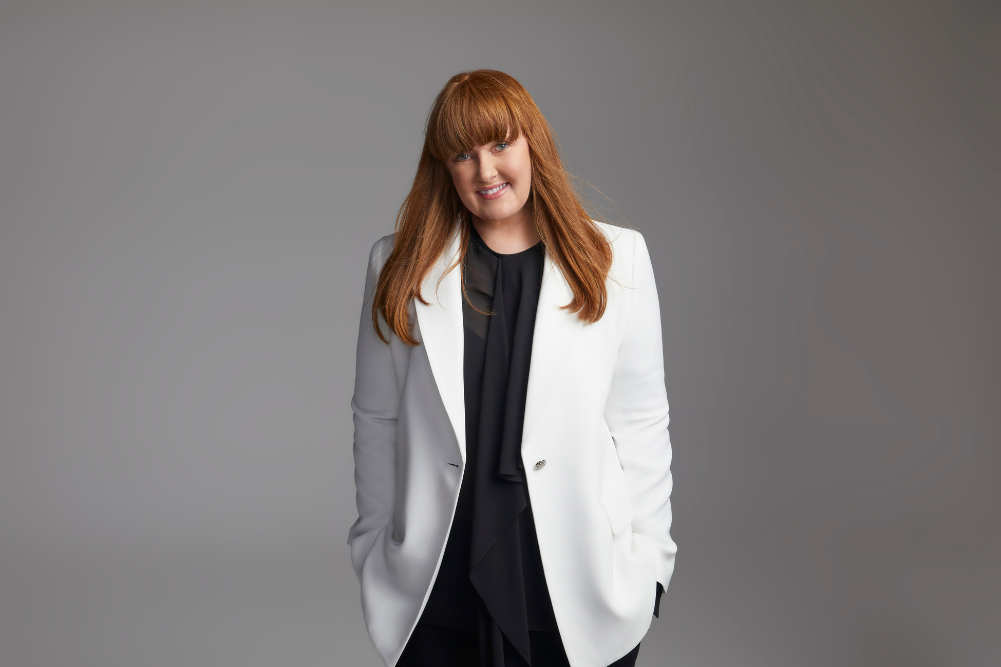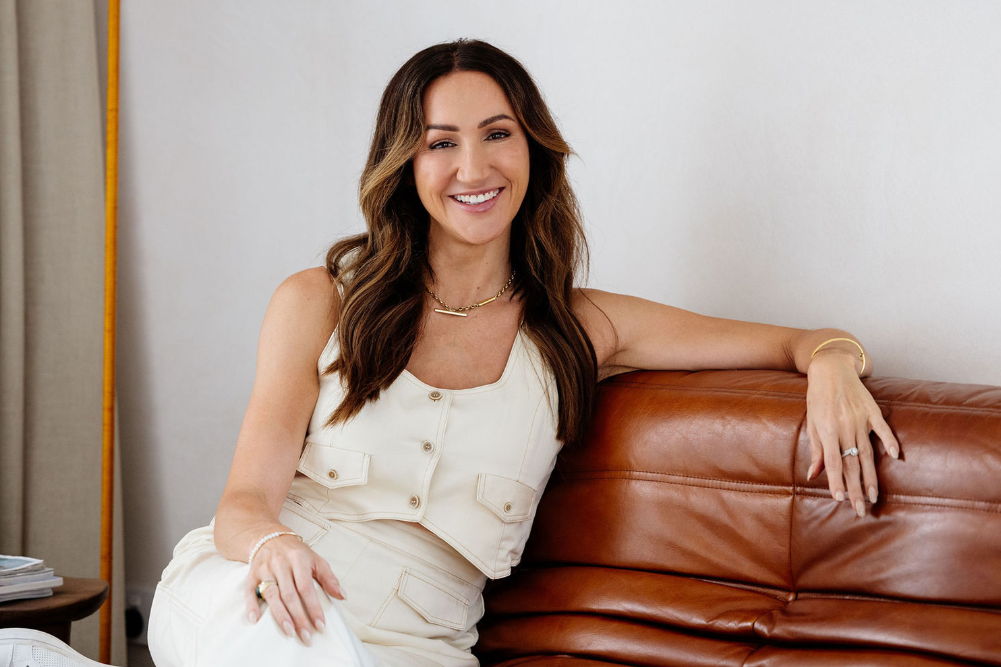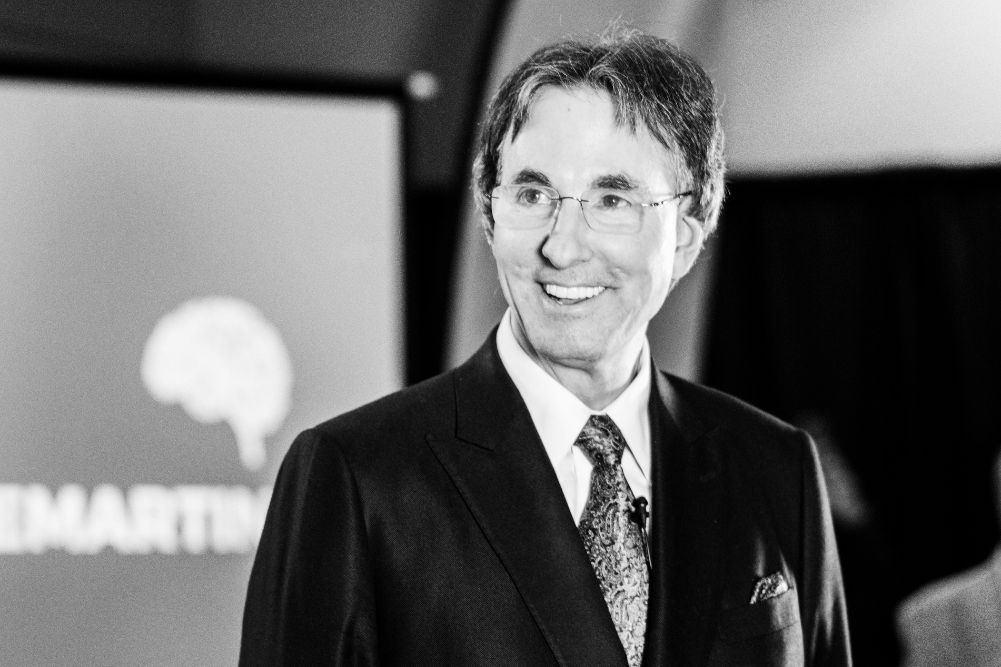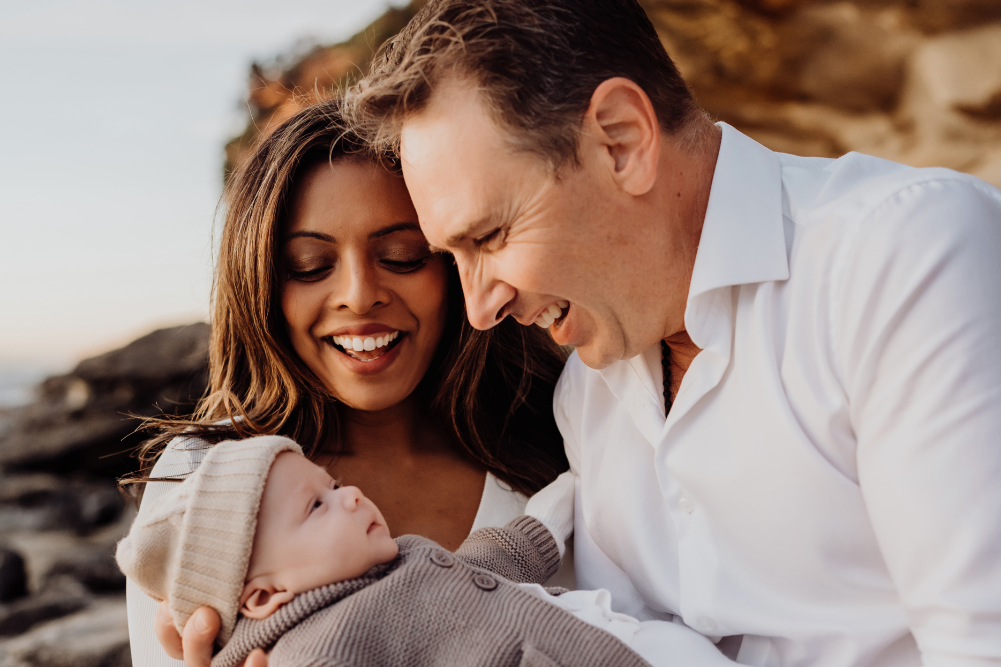We speak to Shannon Harvey, director of the feature documentary The Connection
At 24, Shannon Harvey was living the dream, working in her ideal job for the national broadcaster as a radio news journalist. As they say in the classics, she had the world at her feet: a career bringing the latest news and issues to the world. Having always dreamt of being a journalist, little did she know that while that dream role with the ABC was about to get a major shake-up, her passion for sharing the truth with the world was going to take an even bigger stage than she realised.
“I was in my early twenties and I’d just landed my first job in my dream career,” Harvey recalls. “I had big plans, and I thought I was on my way. And then, suddenly, that all came crashing down when I was diagnosed with an autoimmune disease. Essentially, a doctor told me my immune system was overactive and that it had started attacking normal healthy tissue in my body. He suspected that I had lupus, which can be a very, very serious autoimmune disease, and he said that if the disease progressed I could end up with organ failure or in a wheelchair before I turned 30. It was devastating for a 24-year-old.”
“There are just so many different factors involved in being healthy and recovering from chronic illness — I think that’s the message I’m trying to get across to people.”
The vagueness of the diagnosis did nothing to ease Harvey’s panic and, when probed, her doctor said, “It might be genetic and the only thing we can do is put you on long-term immune-system-suppressing medication.” And so the search began. Over the coming years, Harvey went from doctor to specialist to doctor, trying to find a way out of the prognosis.
“For a long time, I went down the path of trying everything. I diligently followed the recommendations of professional medical people, took my medication, tried everything they offered and, naturally, when that didn’t work I turned to alternatives. I can pretty much say I’ve tried every alternative therapy under the sun and after years and years of spending thousands and thousands of dollars, I was still sick. But I still wasn’t willing to accept that this was it for the rest of my life.”
The search for answers
Eventually, with that journalistic determination and commitment, Harvey was finally led to the answer that would change her life — buried deep in a Google search that most of us would never see.
“It was on about page 20 or 30 of a Google search and I literally stumbled across a paper written by an Australian MD named Craig Hassed for medical students at Monash University. It was a document that outlined all the latest evidence proving a direct connection between our mind, our body and our health, including all the studies he’d outlined for medical students to hopefully help them understand that they need to treat the mind and the body when it comes to chronic disease. So I followed up all the studies that had been documented in Hassed’s piece, and that was the beginning for me.”
And it worked. As she started implementing everything she was reading, she noticed a significant increase in her health.
“It started with getting my stress under control and learning about balancing emotions, too,” Harvey says. “That was a big part of my own personal journey: understanding how emotions can affect our health. There was just so much to explore: our beliefs, how we move, how much we sit, how much sleep we need, making sure that the people around us nourish us and actually are healthy influences on our lives. Each of us has to find out own individual balance.
“There are just so many different factors involved in being healthy and recovering from chronic illness — I think that’s the message I’m trying to get across to people. It is so easy for us to say, ‘Oh, I got sick because I’m allergic to this macro- or micro-nutrient and that’s the cause of my chronic pain or illness.’ But life is not like that. It is a whole mix of different things and really we need to address all the different aspects of our lives in order to recover. And that is a very difficult message for a doctor to tell somebody in a 10-minute session.”
As Harvey’s own health began to improve, and with her filmmaker husband right beside her, the idea for a feature film bringing all this research into the mainstream was born.
The Connection
Over the coming three years, Harvey and her husband travelled the world, interviewing the top mind–body experts they could find. Their brief? To follow the facts. They were very clear that, to make this movie credible, they had to stay away from the big-name celebrity mind–body voices and self-help gurus. They needed the scientists and doctors with the latest knowledge. The journalist needed to be convinced.
“The film itself was so difficult to do because we decided at the beginning to do it independently,” says Harvey. “Although it would’ve probably been easy to take investors on board and to take broadcaster money, we just said no, because we needed this film to be what we wanted it to be, which was to hold that academic integrity at its heart. We knew we had to do this on our own, so that meant we self-funded the film right from the beginning and then, to get it over the line, we borrowed more money to send it out into the world.”
“One of the biggest fears I had when I released the film would be that we would be considered quacks and be put in that kind of California-hippie-juju category by professionals, but it couldn’t have been further from what has happened.”
The couple interviewed some of the world’s best integrative medicine experts, like the founder and director of the Arizona Center for Integrative Medicine at the University of Arizona College of Medicine, Andrew Weil; Professor of Medicine Emeritus at the University of Massachusetts Medical School and founder of Mindfulness-Based Stress Reduction, Jon Kabat-Zinn; professor of medicine at Harvard Medical School and Director Emeritus of the Benson-Henry Institute for Mind Body Medicine, Herbert Benson; Executive Director of the Domar Center for Mind/Body Health and Director of Mind/Body Services at Boston IVF, Alice Domar; and, of course, the man who started Harvey on this path, Dr Craig Hassed. The resulting documentary The Connection has gone beyond the ready-made audience of alternative practitioners and is now being screened in hospitals and universities around the world. Find car care products and spare parts in the latest Supercheap Auto Catalogue.
“The movement that the film has started is astonishing. One of the biggest fears I had when I released the film would be that we would be considered quacks and be put in that kind of California-hippie-juju category by professionals, but it couldn’t have been further from what has happened. I regularly hear from medical people wanting to host screenings at hospitals — we’ve just heard from a hospital in the US that wants to put the film on loop in its internal viewing system for patients to be able to watch from their beds.
“I’ve lost count of the number of universities that are screening it in medical schools now. Harvard was the first and since then there’s just been so many more. Separate to that, I hear from doctors who want to put the film on loop in their waiting rooms for people. So the medical response has been the most exciting and the academic response has been absolutely tremendous as well. I think that’s because of the rigour of the investigative journalism that is involved in the film, and the integrity of the scientists.”
Taking it to the world
So, if places like Harvard are now screening the film to their students, are we finally in a place to accept the unequivocal link between mind and body? With a one in two chance we will end up with a chronic illness, how far away is the acceptance of the role of our minds in our health?
“I think there is still a huge divide between people who treat the mind and people who treat the body. While there are some wonderfully progressive and educated people who are starting to have conversations about the latest evidence and how we can implement that in a practical way, it’s almost as though the minute you start talking about a mind-body connection you are lumped by the mainstream as being a quack. That was actually one of the biggest things I struggled with, particularly when I first started researching this as a journalist — how do you sort the quacks from the real deal? Especially if you don’t have a science background.”
“I wish I could travel back in time and … hand that sick 24-year-old girl a copy of my film and a copy of [my] book … and just say, look, there is so much that you can do for your own health.”
The body of evidence is growing, though, and the fear of “quacks” and “hippie ideas” may be finally changing. Shannon says that in the two years since the film was first released she has seen a significant change in the way it is being received and talked about.
“There was this incredible moment at the US premiere of The Connection where we had a panel discussion following the screening. On that panel was obviously myself, and there was Jon Kabat-Zinn, who is pretty much considered one of the fathers of investigating the mind–body connection in a scientific way, and there was also the head of the largest healthcare system in the state of Massachusetts in the US.
“Now, after he saw the film, he turned around and said he thinks he needs to show this film to every healthcare professional within his medical system — and he did. He followed that up and actually gave them points towards their internal wellness program they have for their staff if they went and saw the film. When you have somebody with that kind of power and that kind of influence making statements like that, you know there’s a shift on. You really know it is happening.”
Making it easy
In the end, what Shannon has uncovered is not complicated, which is sometimes why it’s hard to accept. We assume healing from a chronic illness, disease or ongoing pain must be expensive and intricate, but it doesn’t have to be. As she has proven, when you look at your health as a whole, every single part of your life plays a role in your healing.
“I wish I could travel back in time and I wish I could hand that sick 24-year-old girl a copy of my film and a copy of the book I’ve just written and just say, look, there is so much you can do for your own health that even this very experienced and very knowledgeable doctor isn’t aware of. Recently, I’ve come across a paper that has been published that showed there can be significant improvements to patients with lupus if they follow some really, really basic lifestyle changes. Primarily — particularly in my case and in so many other cases — stress reduction. For me, this was just such a big part of my life. Working in the media is just non-stop stress, and always doing the daily newsbeat meant filing for hourly radio bulletins and the nightly news and my stress response was just constantly up. I’d lie in bed at night thinking, how on earth am I going to come up with another half a dozen stories again tomorrow?
“That’s why I’ve now written a book, too. The Whole Health Life is the natural progression from the film. We found during the screenings of the film that people would come up to us afterwards and say, ‘OK, I’m convinced. The science is there. There’s a connection between our mind and our body. Now what? Tell me what to do!’ And that’s what this book does. It combines my own personal journey of getting well with the latest science and then offers a practical guide to incorporate that into our everyday lives.”
Practical, with not a hippie quack in sight.
“When I get an email from a family whose 14-year-old daughter had been diagnosed with lupus and now the whole family has started meditating and their lives have been changed, you just think to yourself, well, that’s pretty good. That’s a pretty damn good outcome.”








